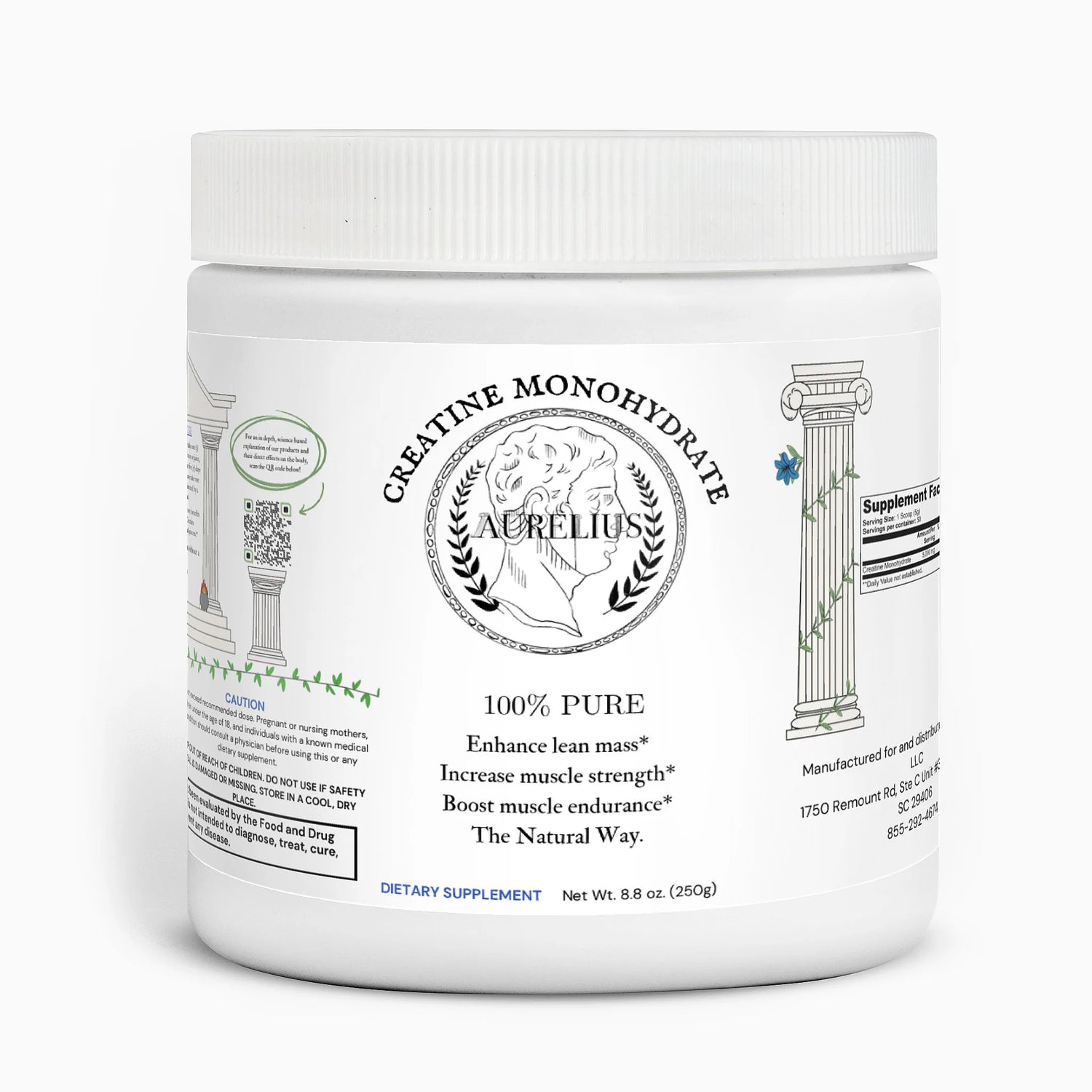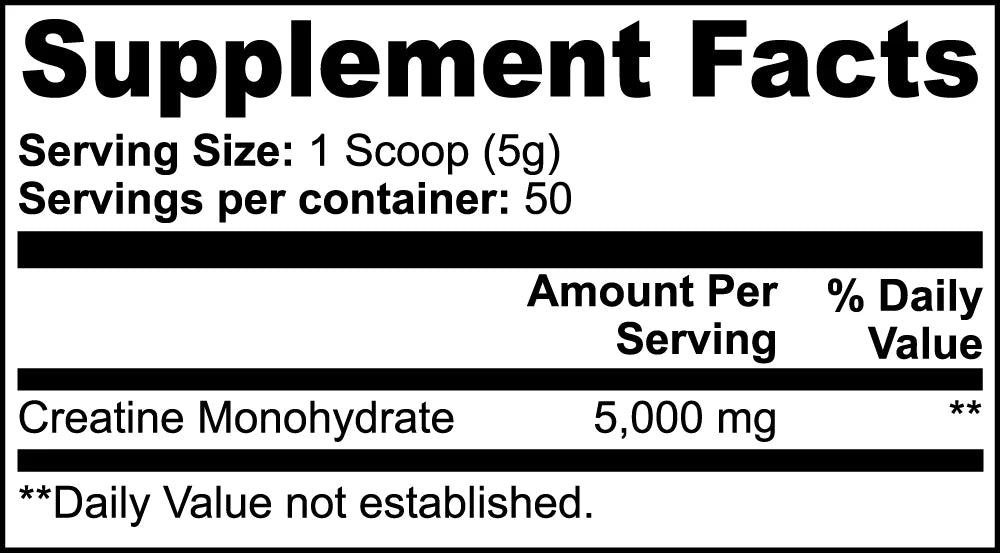
Creatine Monohydrate
While produced naturally in our bodies, is highly recommended as a supplement as well. Taken as a dietary supplement, adults take one (1) scoop in eight (8) oz. of water or juice four (4) times daily during the first five (5) days (loading phase). After the loading phase, take one (1) or two (2) times daily or as directed by a health care professional.

-
Creatine Monohydrate:
Purpose:
- Primarily functions in the body by enhancing the availability of adenosine triphosphate (ATP), the main energy currency of cells.
- Conversion to Phosphocreatine (PCr): Inside the muscle cells, creatine is converted into phosphocreatine (PCr), also known as creatine phosphate. This reaction is catalyzed by the enzyme creatine kinase.
- ATP regeneration during high-intensity exercise: During intense, short bursts of activity, like weightlifting or sprinting, muscles rapidly use up their limited stores of ATP, according to the Cleveland Clinic. When ATP levels drop, PCr quickly donates its phosphate group to adenosine diphosphate (ADP), converting it back into ATP. This process is crucial for maintaining a continuous supply of energy for muscle contraction.
- In essence, creatine acts like a readily available backup energy source, allowing muscles to sustain high-intensity efforts for a few extra seconds before fatigue sets in.
- Creatine increases the water content within muscle cells, which can contribute to muscle growth and reduce dehydration and muscle cramps.
- It may raise levels of anabolic hormones, like IGF-1, which play a role in muscle growth.
- Creatine may activate satellite cells, which are involved in repairing micro-tears in muscle fibers that occur during exercise.
Where its Found:
- Creatine is naturally produced in the body, with males having naturally higher levels than females.
- After digestion, creatine monohydrate is absorbed and transported to muscle cells where about 95% of the body's creatine is stored.
- Found in meats, poultry, and fish, with a major contributor being red meats.
Sources
Creatine Monohydrate:
Cleveland Clinic. “Creatine.” Cleveland Clinic, 26 Apr. 2023, my.clevelandclinic.org/health/treatments/17674-creatine.
Mawer, Rudy. “Creatine 101: What Is It and What Does It Do?” Healthline, 18 May 2022, www.healthline.com/nutrition/what-is-creatine#basics.
Mayo Clinic. “Creatine.” Mayo Clinic, Mayo Clinic Staff, 9 Feb. 2021, www.mayoclinic.org/drugs-supplements-creatine/art-20347591.
